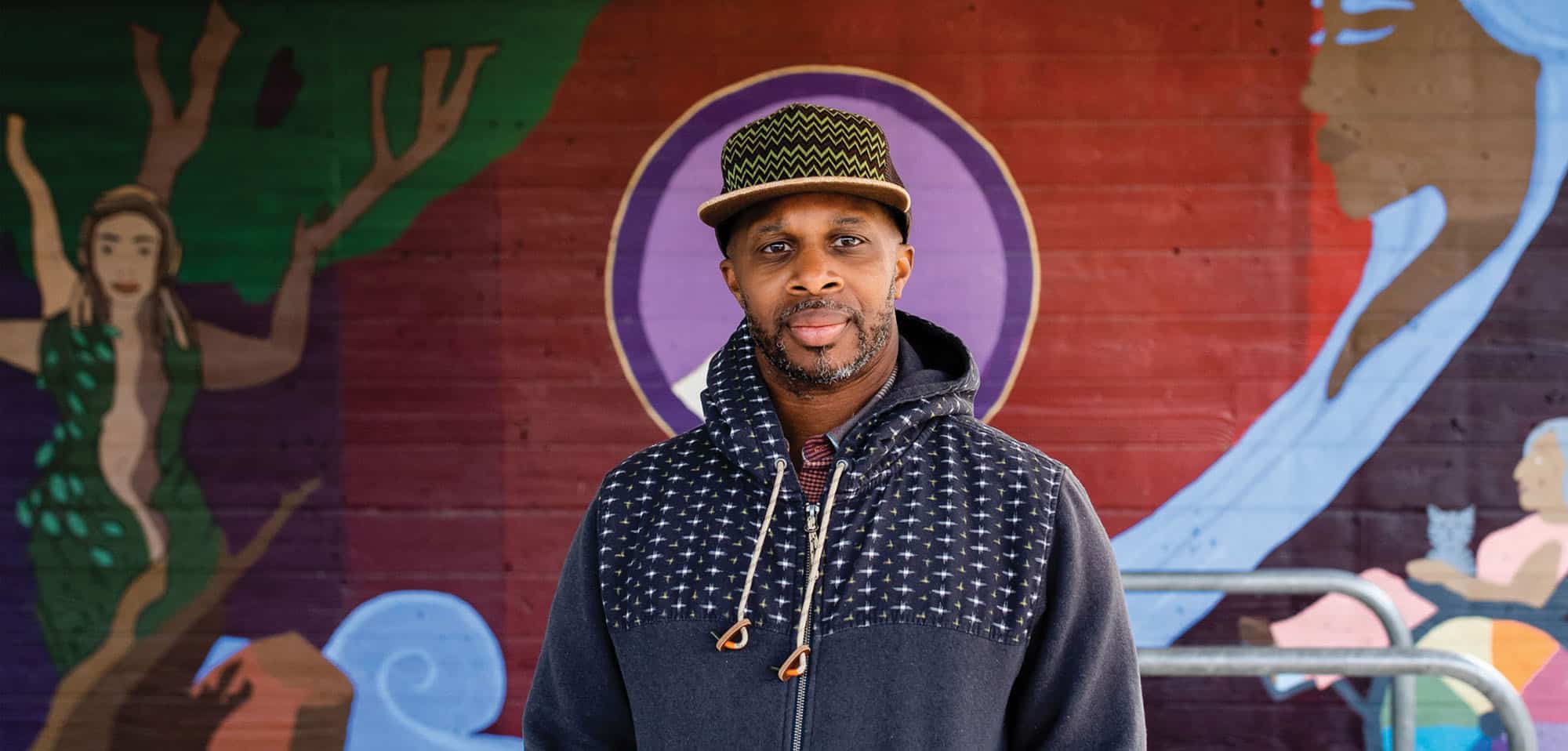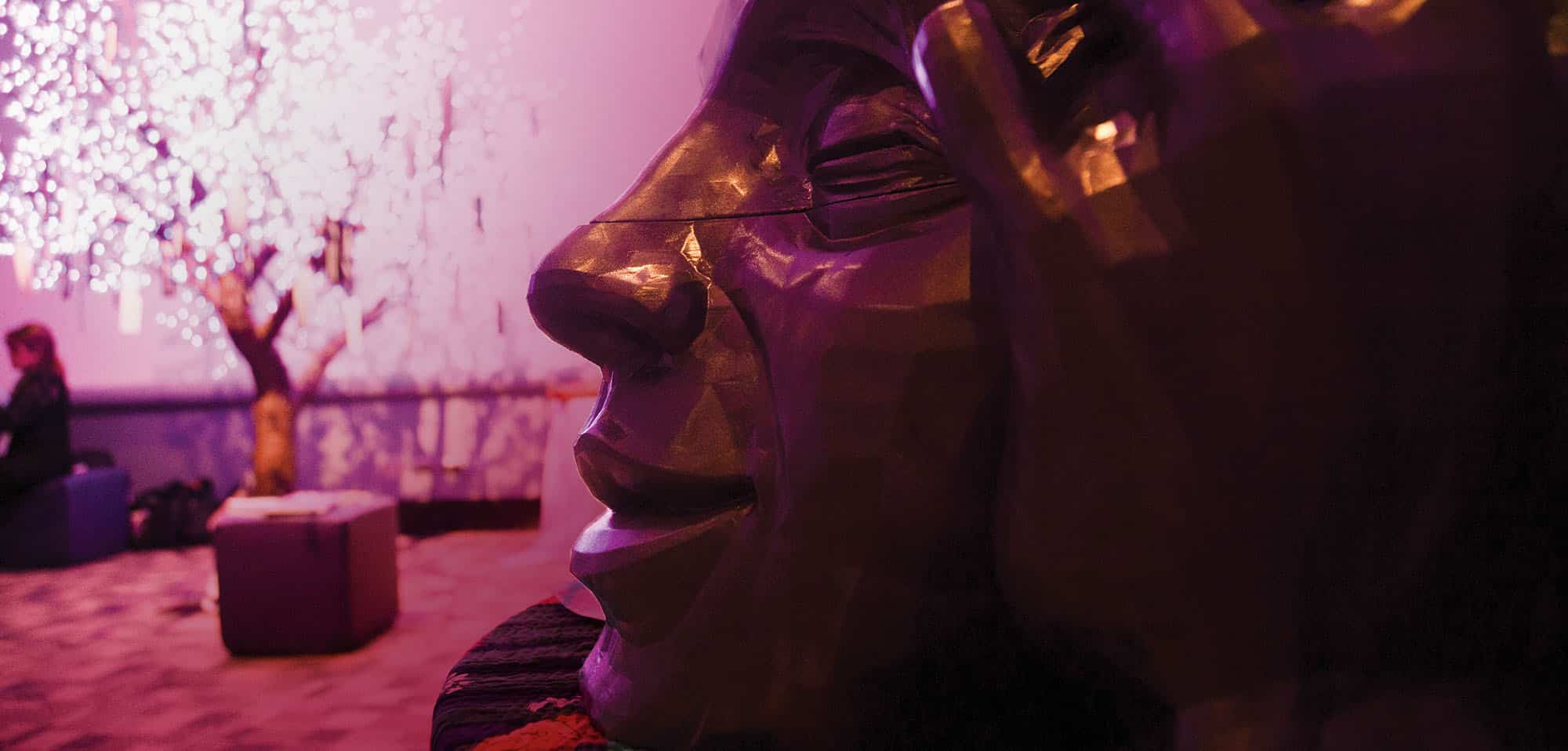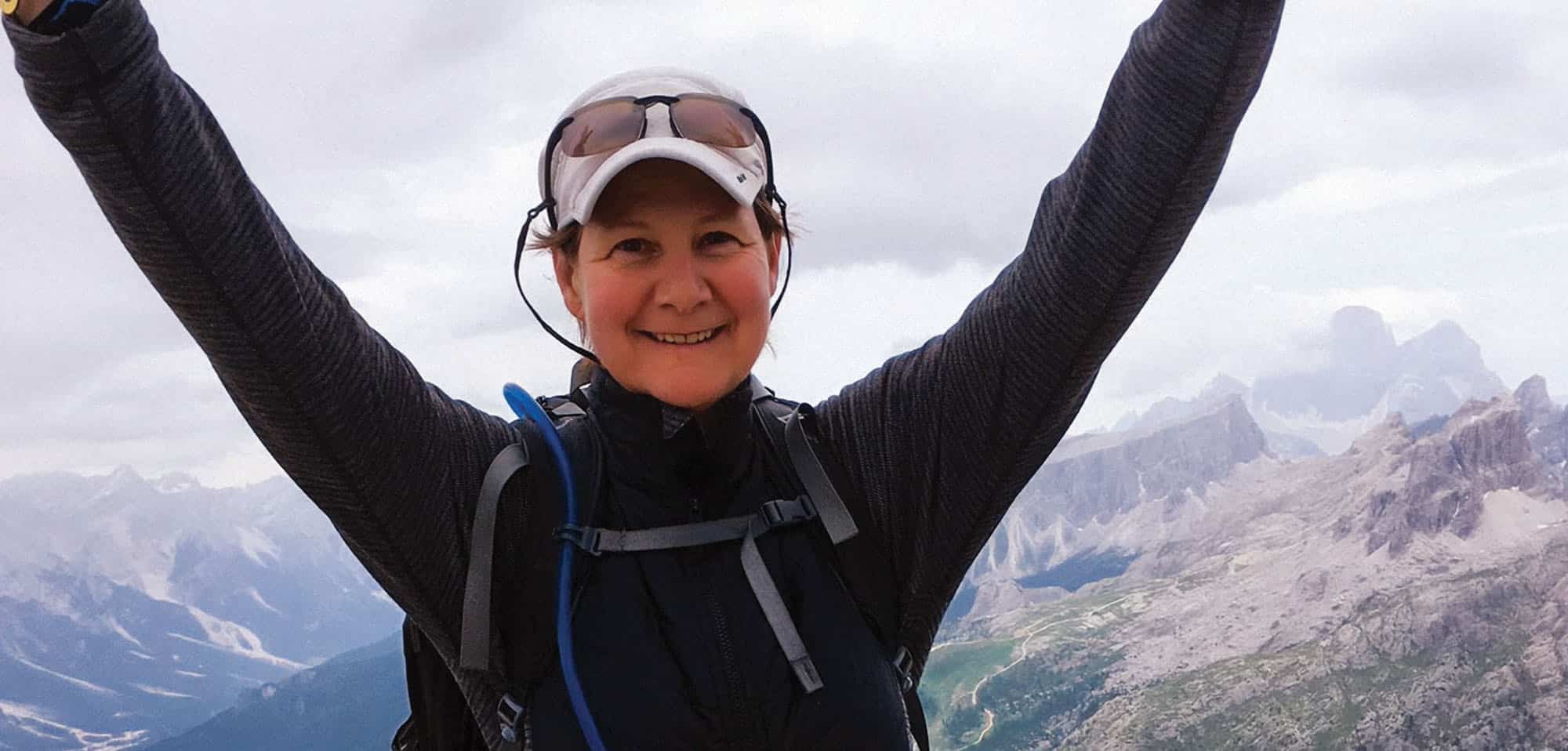 “As a therapist, my work encompasses all of the worlds that comprise a person: outside and inside the individual, and the multitude of dynamics in between,” says Marie Janiszewski (MA Clinical Mental Health Counseling, 2023). “I have the honor of accompanying clients, ages 12 to 80, in Brooklyn, New York, as they encounter these worlds of experience and courageously feel, heal, and step into the inevitable uncertainty of every present moment. I witness firsthand the pain and destructiveness that avoidance of the unknown (i.e. avoiding conflict, experiences, emotions) has on the human spirit, interpersonal dynamics, and society at large.”
“As a therapist, my work encompasses all of the worlds that comprise a person: outside and inside the individual, and the multitude of dynamics in between,” says Marie Janiszewski (MA Clinical Mental Health Counseling, 2023). “I have the honor of accompanying clients, ages 12 to 80, in Brooklyn, New York, as they encounter these worlds of experience and courageously feel, heal, and step into the inevitable uncertainty of every present moment. I witness firsthand the pain and destructiveness that avoidance of the unknown (i.e. avoiding conflict, experiences, emotions) has on the human spirit, interpersonal dynamics, and society at large.”
Having practiced meditation for 10 years and attended numerous weeklong meditation retreats, mindfulness and contemplation are naturally at the heart of Janiszewski’s work. “Recognizing the positive emotional and psychological impacts of mindfulness in my personal experience inspires me to bring it into every facet of my life, including the professional arena. Mindfulness is often considered a practice that is done (often in the morning and on a special cushion). Yet, my education taught me that mindfulness, in its truest form, is instead a way of approaching life, work, challenge, and uncertainty. Out of mindfulness, I see my emotions and thoughts as just that—not as right, wrong, good, or bad—and, from that place, I have more room to choose, to get curious, and to explore things as they are in myself and in others.”
She sees numerous benefits of practicing mindfulness in the therapeutic setting. “First, I find that every session is an opportunity for me to maintain deep mindfulness of my own perceptions and reactions to safeguard against any unconscious biases I may be holding, and to provide a clearer mirror to my clients with regard to their psycho-emotional patterns and interpersonal dynamics. I also provide various forms of mindfulness training to clients for a variety of reasons, including regulation of the nervous system, discerning between judgments and reality, and developing personal practices toward insight and healing. I have seen incredible relief, learning, and transformation occur as a result of various mindfulness practices in myself and so many clients.”
She is currently collaborating with Naropa professor Stephanie Moore on research and publication projects, exploring conflict resolution, peacekeeping, and social contracts. Centered around rupture and repair processes in the therapeutic relationship, their research grew out of her capstone project at Naropa. “We see particular value in this topic as it relates to societal patterns of conflict and resolution—which is as much a pressing topic today as it has ever been—with a focus on strategies for peacekeeping. Another important aspect of this research includes the internal experience of conflict, which can be explored in areas of psychological research such as experiential avoidance, discrepancies between an individual’s values and behaviors, and projective identification.” Currently in the exploration phase, their next step is to draft and publish a literature review.
She recently wrapped up work as a research assistant in the Nutrition Department at Harvard University’s T.H. Chan School of Public Health, where she contributed to a study linking nutrition, epidemiology, and environmental health. After publishing the study in Lancet Planetary Health, she reworked their datasets to make them accessible to researchers and the public. She’s now collaborating with Diet ID “to integrate the environmental impact measures developed at Harvard into their novel dietary assessment tool that is clinically and publicly accessible.”
She describes her path to Naropa as meandering. “My life trajectory included professional oil painting, community development coordination, off-grid living and farming, meditation retreats and practice, nutrition and environmental health research, sustainability teaching, and native Hawaiian canoe paddling. Throughout this path, I realized mental health’s vital role in effective creation and change.” She continues to nurture diverse interests, including painting, dancing, hiking and biking, traveling, growing vegetables, and even surfing. “Seeking to know things as they truly are illuminates my choices and movements in the world. The more this curiosity remains in the here and now, the more illuminated life becomes,” she says. “There is no better time than now to wake up and meet the world just as it is, and just as we are.”





